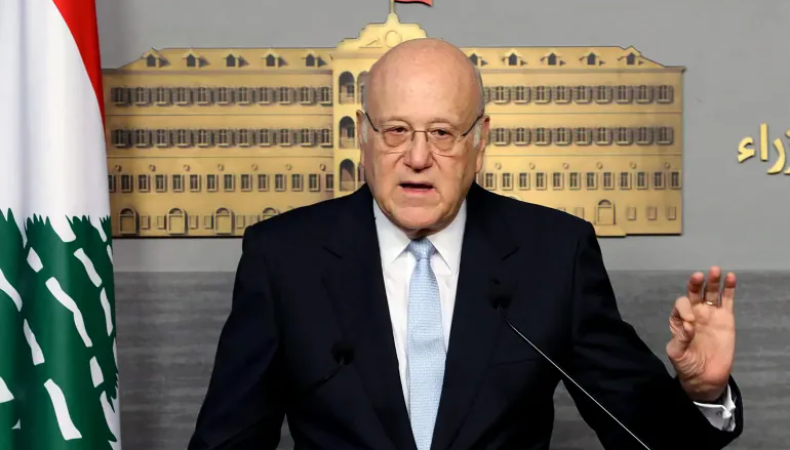
Lebanon finds itself in the midst of devastation as conflict intensifies between Israel and Hezbollah. In a desperate plea for peace, Lebanon’s caretaker prime minister, Najib Mikati, has formally requested the United Nations to approve a resolution calling for an immediate cease-fire. This comes as rescue teams in Beirut continue their search for survivors in the aftermath of deadly airstrikes that have tragically claimed 22 lives and injured over 100. The strikes, which hit densely populated areas in the capital, represent the most catastrophic attack the city has seen in more than a year of escalating violence between Israel and Hezbollah.
The Toll on Civilians
The latest airstrikes have brought a chilling reminder to the people of Lebanon: no place is truly safe. The ongoing Israeli military operations, aimed at weakening Hezbollah’s presence in southern Lebanon, have spilled into civilian areas, spreading fear and uncertainty. Beirut, which many once saw as a safe haven amid regional turmoil, is no longer spared.
Local businesses are reeling from the destruction. Nazik Rashid, a 50-year-old salon owner in the Basta area, expressed her shock as the airstrike shattered her establishment. “It’s supposed to be a safe refuge here,” she lamented. Her sentiment reflects the anguish of countless Beirut residents who find their daily lives interrupted by violence. The airstrikes not only damage buildings but also shake the sense of security and stability in the city, which has long been a symbol of resilience.
Rising Regional Tensions
The conflict is not contained to Lebanon alone. Hezbollah has fired hundreds of missiles into Israel, intensifying the situation. Israeli retaliation has not only targeted Hezbollah but has also led to losses within the Lebanese Army, with two soldiers killed and others wounded. Even United Nations peacekeeping forces have been caught in the crossfire, with two peacekeepers injured by nearby blasts.
Israeli leaders have made it clear they will not consider a cease-fire while Hezbollah remains a threat to northern Israel. This refusal, combined with Hezbollah’s continuous missile attacks, raises concerns about further escalation, with many fearing that the worst is yet to come. More than 60,000 people have already been displaced in Israel, and the humanitarian toll on both sides of the conflict continues to mount.
A Diplomatic Path Forward?
In a televised address, Prime Minister Mikati urged for diplomacy, calling for the restoration of the 2006 U.N. agreement that was originally designed to demilitarize the border between Israel and Lebanon. The agreement aimed to reduce Hezbollah’s military presence in southern Lebanon while bolstering Lebanese Army forces in the region. Although Mikati expressed hope for Hezbollah’s compliance, uncertainty looms over whether the group is truly willing to withdraw its fighters or cease its missile strikes on Israel.
Hezbollah’s media office, through spokesperson Mohammad Afif, hinted at the possibility of cease-fire talks but emphasized that any resolution must align with their broader goal of defeating Israel. This ambiguity leaves Lebanese civilians and the international community wondering if peace is achievable.
The Uncertain Future for Beirut’s Residents
As Beirut residents struggle to cope with the destruction, they face an uncertain future. Samira Ali Sbheiteh, a 71-year-old resident, expressed her anxiety as she waited for news about family members trapped in one of the bombed buildings. For many, the trauma of these strikes compounds an already difficult existence, especially for those who had fled conflict in southern Lebanon only to find themselves targeted again in Beirut.
“We’re going to become homeless eventually,” said Sawson Moussa, a resident of one of the affected apartment complexes. Her tears, mixed with memories of the recent devastation, reflect the helplessness shared by many Lebanese people caught in the middle of this unrelenting conflict.
Wider Consequences and the Need for Peace
The conflict between Israel and Hezbollah is not just a regional issue; it has the potential to affect international relations and destabilize the broader Middle East. Hezbollah’s entrenched position in southern Lebanon, combined with its massive stockpile of weapons near the Israeli border, continues to be a point of contention. Israeli officials view Hezbollah as a far greater threat than the Lebanese military, complicating efforts for peace.
The recent escalation, which saw Hezbollah and Hamas synchronize attacks against Israel, has fueled concerns of a larger regional crisis. As international powers keep a watchful eye on the situation, the urgency for a cease-fire and diplomatic solution grows stronger by the day. Prime Minister Mikati’s appeal to the U.N. underscores the need for immediate action to prevent further loss of life and alleviate the suffering of civilians on both sides.
